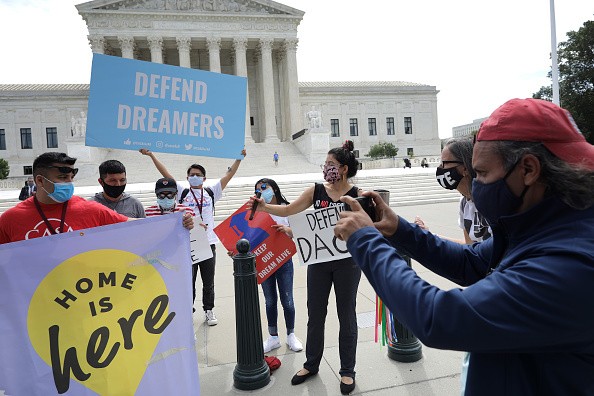Are you a U.S. citizen who lives abroad or a non-U.S. citizen who lives and works in America, wondering if you could receive a stimulus payment?
President Donald Trump has signed a new COVID relief into law, including the second round of stimulus checks to be sent sooner. However, your citizenship might make you wonder if you are supposed to get a stimulus check, a reason why you failed to receive the first round of payments last year.
The rules for the qualification for the stimulus check changed, and it will depend on your immigration status in the U.S., even if you live outside the country. Here is a break down of the changes in the rules that would determine if you missed would still receive a stimulus check based on your citizenship, as per CNET:
How does the IRS count a person as a U.S. citizen?

According to the Internal Revenue Service (IRS), people are considered U.S. citizens if they wereb born in the U.S. regardless of their parents' immigration or tax status. However, a person may also be an American citizen at birth even if he was born outside the country if at least one parent is a U.S. citizen who lived in the country for some time.
The federal agency also considers a person a U.S. citizen if you went through a naturalization process and are over 18. The naturalization process usually involves filling out an application, going on an interview, passing a citizenship test, and living in America for three to five years. A Certificate of Naturalization or Certificate of Citizenship is needed to prove that you are a U.S. citizen, as well as getting a Social Security number to be fully eligible for the stimulus check.
Read also: Your Dream $2,000 Stimulus Check May Come True with This Significant Event
Do I need to be a U.S. citizen to receive a stimulus check?
Under the CARES Act passed in March, all U.S. citizens and non-U.S. citizens with Social Security numbers living and working in America are eligible to receive the first stimulus payments. People referred to as "resident aliens," workers using visas such as H-1B and H-2A, and green card holders are included.
The rule with CARES Act goes the same with the new legislation. However, you may have to the IRS's records through its online non-filers tool if your citizenship status changed.
If I am an undocumented U.S. resident, am I eligible?
The undocumented or "nonresident alien" is not eligible for the second stimulus checks as the government defines them as someone who did not pass the green card test. You are likely not eligible for a stimulus payment either under the CARES Act or the new stimulus package if you don't have a valid Social Security number. Being able to file a U.S. tax return but cannot provide a Social Security number would not make you eligible as well.
If I am a 'resident alien' am I eligible for a stimulus check?
Even if you are a 'resident alien,' you are still a green card holder and worker in the U.S. with a visa such as H-1B and H-2A, enabling you to obtain a Social Security number. Therefore, resident aliens are eligible for the second stimulus payment, like in the first round of checks under the CARES Act. 'Resident Aliens' will remain eligible for stimulus checks as long as they are claimed as a dependent of another taxpayer.
A "resident alien" is someone who meets the substantial presence test or a green card holder for the calendar year, as per NOLO.to pass the substantial presence test, a resident alien should be present in America for 31 days during the current year. He must also complete 183 full days being in the U.S. in the past three years.
If I am a citizen but lives abroad, am I eligible?
U.S citizens who live outside the country are eligible for the first stimulus payment and still eligible for the second round of up to $600 for single filers, $600 for each qualifying dependent, and $1,2000 for married filing jointly. But you won't be eligible if you don't have a valid Social Security number or if someone else claims you as their dependent on their taxes, like the rest of the U.S population.
Read also: Second Stimulus Checks: $600 Payment Won't Increase to $2,000. Don't Worry; There's Still Good News!
© 2026 HNGN, All rights reserved. Do not reproduce without permission.








